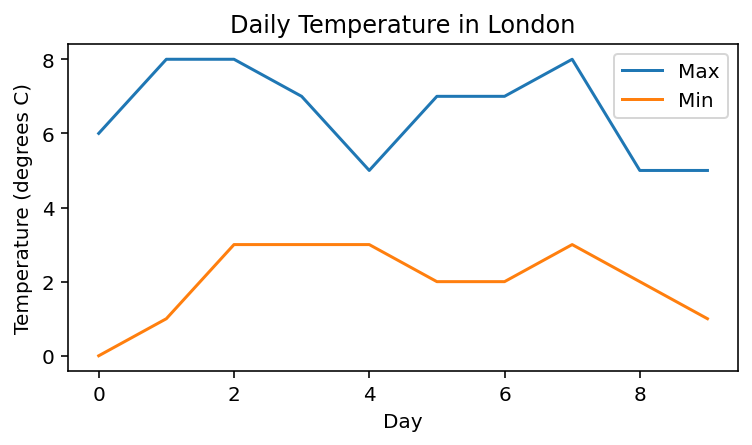Further Practice
2.5. Further Practice#
Exercise 2.14
Use a for loop to produce the following output:
5, 7, 9, 11, 13, 151, 10, 100, 1000, 10000, 1000000, 1, 2, 0, 1, 2, 0, 1, 2(hint: use the%operator)
Exercise 2.15
Look up the predicted daily maximum and minimum temperatures for the next 10 days according to the BBC weather forecast.
https://www.bbc.co.uk/weather/2643743
Create two arrays containing the maximum and minimum temperatures and plot them as two separate lines on a line graph, including axis labels and title. Look up how to add a legend in the Matplotlib documentation.

Exercise 2.16
Adapt your solution to the cannonball problem to incorporate air resistance. Assume that at each time step the x- and y-velocities each reduce by a fixed fraction \(d\) (so that the velocity equations become \(u_{i+1} = u_i - du_i\) and \(v_{i+1} = v_i - g\Delta t - dv_i\)).
For a given \(d\), what value of \(\theta\) maximises the distance travelled by the cannonball?

